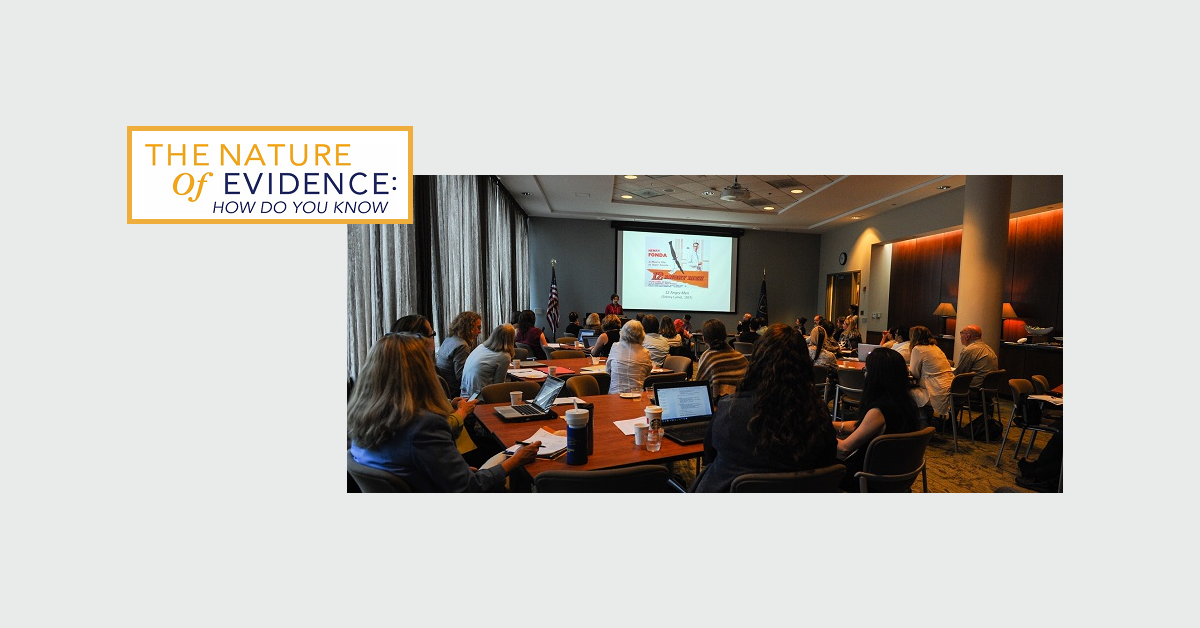New and expanded classes about digital scholarship are featured as part of the 3rd annual Faculty Development Workshop hosted by Emory’s Quality Enhancement Plan (QEP) for nearly two dozen faculty attendees from May 10 – 12, 2017, on the university’s Druid Hills campus.
Team members of the Emory Center for Digital Scholarship (ECDS), with expertise in digital pedagogy, mapping/GIS, multimedia, online exhibits, and text analysis, are leading three information sessions at this year’s workshop. The QEP team expanded ECDS participation based on faculty feedback from last year’s sessions.
With the QEP topic, “The Nature of Evidence,” the ECDS sessions emphasize both traditional and nontraditional sources of evidence along with digital tools, methods, and assignments to engage first-year students in the pursuit and use of evidence.
“Digital scholarship has a lot to offer to the evidence-focused courses,” says QEP Director Tracy Scott, a senior lecturer with the Department of Sociology.
“In our increasingly technological world, teaching students how to recognize evidence in many different and non-traditional forms becomes very important. We are fortunate to have experts from ECDS share with our participants about the many resources available to integrate digital scholarship and evidence in their courses.”
ECDS session topics include:
- Traditional Sources of Primary Evidence: Digital tools and methods that can help students analyze traditional textual evidence in new ways; digital text analysis tools and methods for working with primary sources and assignments that engage with the nature of secondary evidence
- Nontraditional Sources of Primary Evidence: Digital assignments that get students thinking of nontraditional sources such as digital stories, mapping/GIS, and digital exhibits
- Evidence in Mapping and GIS: Maps and geospatial data, which span the boundaries between primary / secondary and traditional / non-traditional sources of evidence; ways to explore questions spatially and incorporate this technology into teaching and classroom assignments
The topics and methods of the sessions support the QEP goal of enhancing students’ ability to engage with evidence in a scholarly manner as they interact with the world by producing and consuming knowledge, making informed decisions, and understanding other people.
“Partnering with the QEP provides outreach to some faculty who may not have worked with our center or realized ways we can work together on digital assignments focused on analyzing evidence,” says ECDS Co-Director Wayne Morse.
“This collaboration helps empower undergraduate students with the knowledge of tools and methods to engage in digital scholarship early on in their studies at Emory.”
